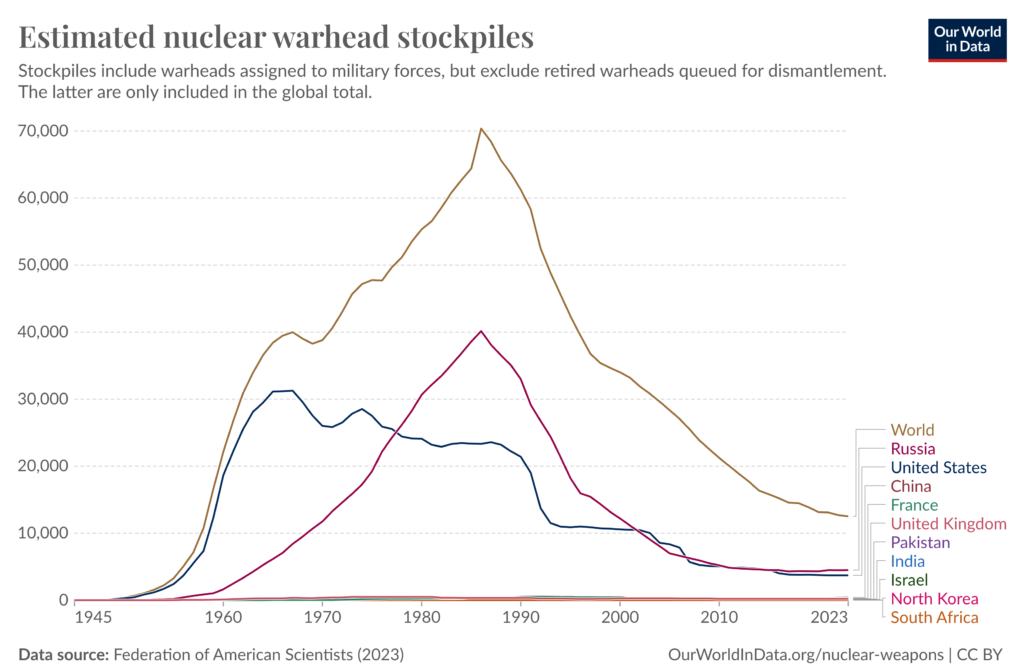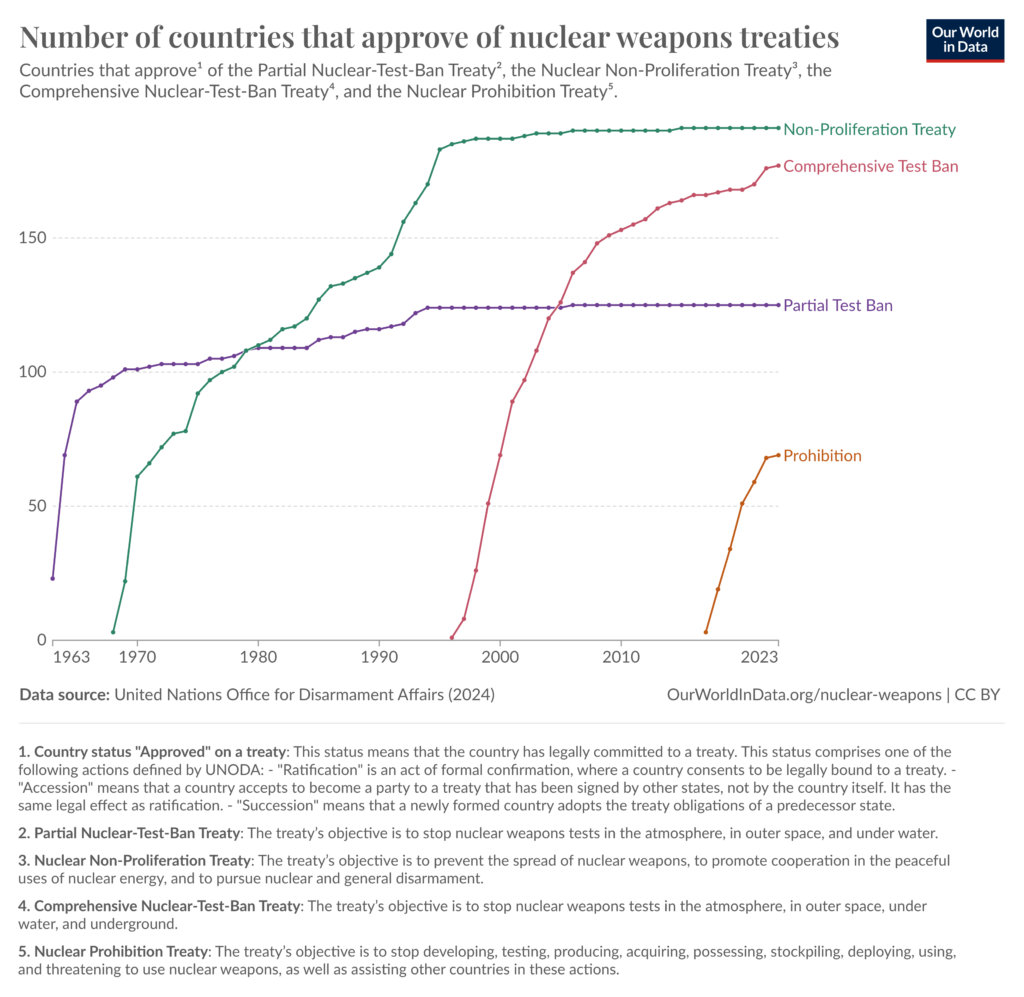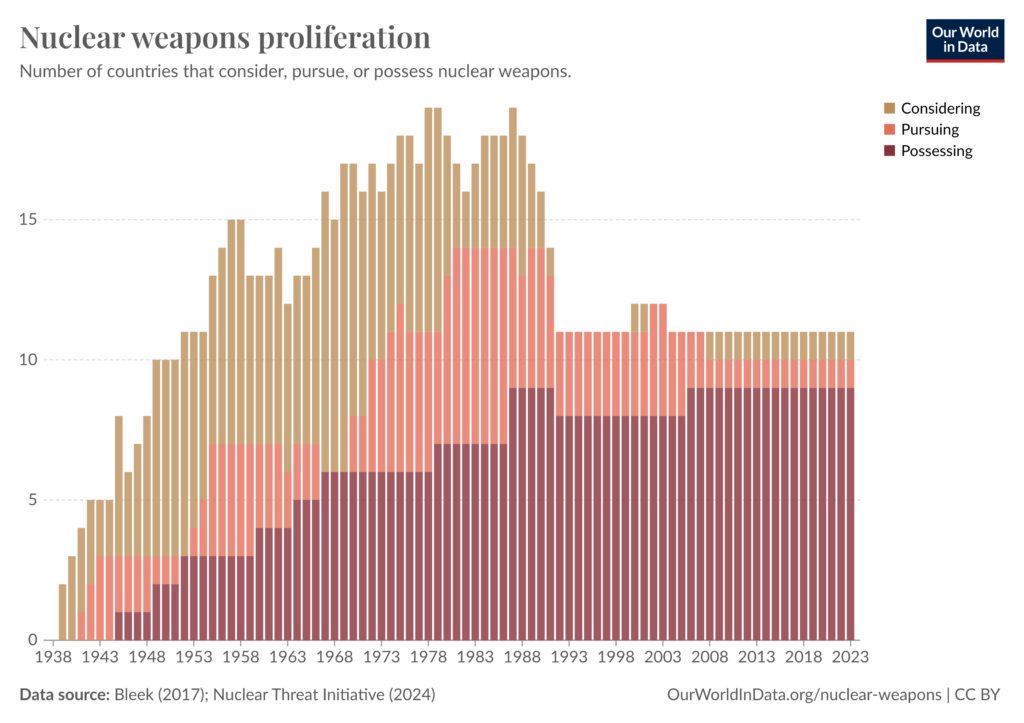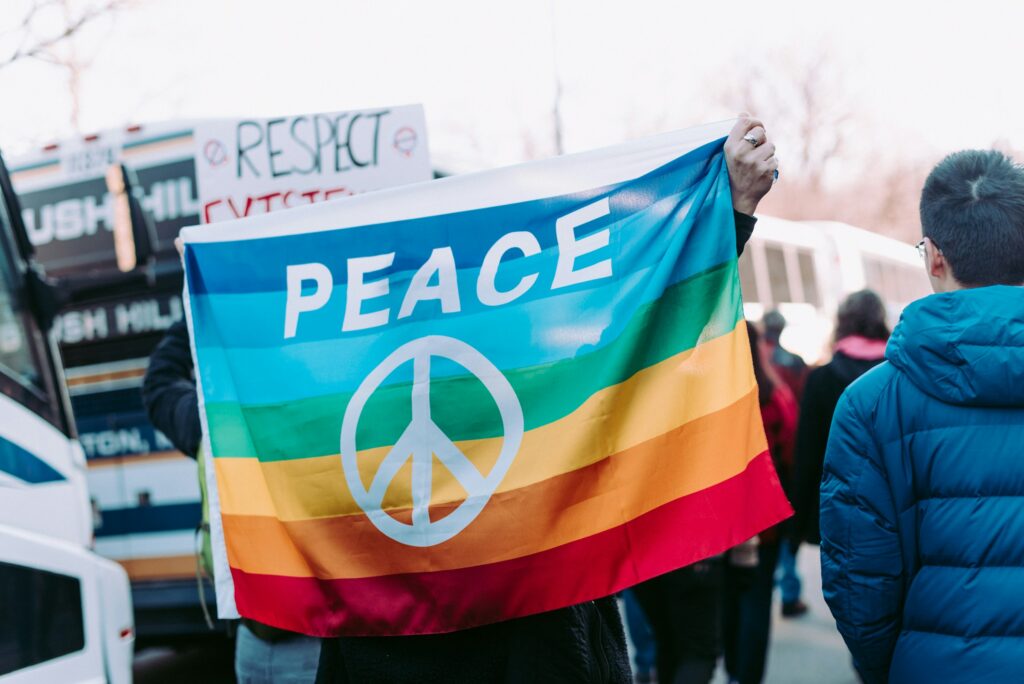Resolve conflicts, eliminate nuclear threats, achieve lasting peace.
“I know not with what weapons World War III will be fought, but World War IV will be fought with sticks and stones.” – Albert Einstein

The Challenge We Face
In an increasingly interconnected world, the threat of interstate war and nuclear conflict remains one of humanity’s most pressing challenges. Despite decades of relative peace between major powers, regional conflicts persist, and the existence of nuclear weapons, other weapons of mass destruction, and the potential for catastrophic escalation, poses an existential threat to our species and planet.
The Scale of the Problem
- There are approximately 12,000 nuclear weapons in the world today, each capable of causing unparalleled destruction. The potential for even a limited nuclear exchange to escalate into a global catastrophe remains a grave concern.
- Nine countries possess nuclear weapons: the United States, Russia, the United Kingdom, France, China, India, Pakistan, Israel, and North Korea.
- A limited nuclear war using just 100 weapons could cause a nuclear winter, leading to global famine affecting billions.
- The Doomsday Clock, maintained by the Bulletin of the Atomic Scientists, currently stands at 90 seconds to midnight – the closest to global catastrophe it has ever been.

Why We Should Care
The consequences of interstate war and nuclear conflict are catastrophic, with the potential to escalate into global annihilation:
- Massive loss of human life
- Destruction of infrastructure and economies
- Long-lasting environmental damage
- Potential collapse of organized human civilization
- Existential risk to humanity from nuclear weapons and the potential for a devastating nuclear winter
Even the existence of nuclear weapons diverts crucial resources from human development and environmental protection.
Reasons for Hope
Despite the gravity of the situation, there are reasons to be optimistic:
- The number of nuclear weapons has decreased significantly since the peak of the Cold War.
- Over 70 countries have signed the Treaty on the Prohibition of Nuclear Weapons.
- Diplomacy has prevented numerous potential conflicts in recent decades, and global efforts continue to reduce the number of nuclear weapons and the risk of their use.
- Increased global interconnectedness makes war more costly for all parties involved.
- Advances in verification technologies make arms control agreements more feasible.

What We Must Do
To prevent interstate war and eliminate nuclear weapons, we need a multi-faceted approach:
- Strengthen International Institutions
- Enhance the UN’s capacity for conflict resolution and peacekeeping
- Develop new frameworks for multilateral cooperation and conflict prevention
2. Promote Nuclear Disarmament and Crisis Management
- Support the implementation of the Treaty on the Prohibition of Nuclear Weapons and strengthen global non-proliferation agreements.
- Advocate for verifiable arms reduction agreements among nuclear powers and improve crisis communication protocols to prevent misunderstandings and accidental escalation.
3. Advance Diplomatic Solutions
- Invest in diplomatic corps and conflict resolution mechanisms
- Encourage track II diplomacy and people-to-people exchanges
4. Address Root Causes of Conflict
- Promote economic development and reduce inequality
- Combat climate change to prevent resource-driven conflicts
5. Enhance Crisis Communication
- Establish and maintain hotlines between potential adversaries
- Develop protocols for de-escalation during crises
6. Invest in Peace Education
- Incorporate peace studies and conflict resolution in school curricula
- Promote intercultural understanding and empathy
7. Support Verification Technologies
- Develop and implement advanced monitoring systems for arms control agreements
- Encourage transparency in military activities

How You Can Make a Difference
Every individual has a role to play in preventing war and eliminating nuclear weapons:
- Educate Yourself: Stay informed about global conflicts and nuclear issues.
- Raise Awareness: Share information with your community and on social media.
- Vote Responsibly: Support candidates who prioritize diplomacy and nuclear disarmament.
- Join Organizations: Get involved with peace and disarmament NGOs.
- Write to Representatives: Urge your political leaders to support diplomacy and disarmament initiatives.
- Participate in Peace Events: Attend rallies, conferences, and workshops on peace and disarmament.
- Promote Cultural Exchange: Engage in activities that foster international understanding.
- Support Peace Journalism: Follow and share news that focuses on conflict resolution and peace-building efforts.

The Road Ahead
“The basis of peace is for people to understand the suffering of others.”
“The path to peace is paved with understanding, compassion, and the courage to change.”
Preventing interstate war and eliminating nuclear weapons is one of the most crucial challenges we face as we approach a world of 10 billion people. The risk of nuclear conflict, whether intentional or accidental, underscores the need for comprehensive disarmament and effective crisis management. It’s a daunting task, but history has shown that seemingly insurmountable obstacles can be overcome with collective will and sustained effort.
By working together, we can create a world free from the threat of war and nuclear annihilation – a world where resources are directed towards human flourishing rather than destruction. The future of our species depends on our ability to resolve conflicts peacefully and move beyond the era of nuclear weapons.
Join us in this vital mission. Together, we can build a safer, more peaceful world for all 10 billion of us.